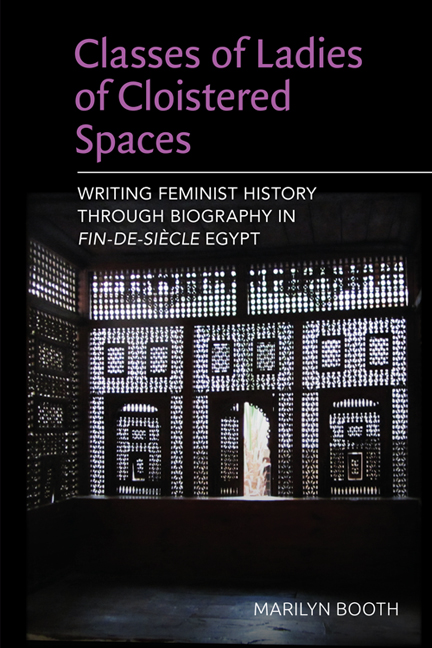Book contents
- Frontmatter
- Contents
- Acknowledgements
- Dedication
- I Pearls Scattered: An Introduction
- II A Women's World History, in the World of Arabic Letters: A Reader's View
- III Founding Mothers, Speaking Sisters: Lineaments of Community in History
- IV Writerly Pursuits: A Compiler's Archive
- V A Beckoning Compass, Circulating Lives: The Bustani Encyclopedia and Other Nineteenth-century Sources
- VI Interlocutors? Men Authoring Women's History in the 1890s
- VII Framing a History of the Present: or, Did the Pearls Scatter to the World's Fair?
- VIII Violent Romances: The Bodily Drama of Patriarchal Trauma
- Conclusion: A World of Women, Feminist History and the Importance of the Feminine Signature
- Appendix I: Translations
- Appendix II: List of Fawwaz's Pearls
- Notes
- Bibliography
- Index
VI - Interlocutors? Men Authoring Women's History in the 1890s
Published online by Cambridge University Press: 05 August 2016
- Frontmatter
- Contents
- Acknowledgements
- Dedication
- I Pearls Scattered: An Introduction
- II A Women's World History, in the World of Arabic Letters: A Reader's View
- III Founding Mothers, Speaking Sisters: Lineaments of Community in History
- IV Writerly Pursuits: A Compiler's Archive
- V A Beckoning Compass, Circulating Lives: The Bustani Encyclopedia and Other Nineteenth-century Sources
- VI Interlocutors? Men Authoring Women's History in the 1890s
- VII Framing a History of the Present: or, Did the Pearls Scatter to the World's Fair?
- VIII Violent Romances: The Bodily Drama of Patriarchal Trauma
- Conclusion: A World of Women, Feminist History and the Importance of the Feminine Signature
- Appendix I: Translations
- Appendix II: List of Fawwaz's Pearls
- Notes
- Bibliography
- Index
Summary
It was not only Syrian Christians who were writing women's biographies and taking up historical women as exemplars from the 1870s on: as we saw, the Ottoman intellectual Mehmet Zihni explicitly tailored his ‘famous-women’ volumes to the training of female teachers who would then pass these exemplary narratives on to their female students. I have distinguished Fawwaz's work from these other compilations while tracing her dependence on them. In this chapter, I consider other writers’ projects, published in the decade in which Fawwaz wrote, to argue that whilst Fawwaz's book was distinct it emerged in a context where the history of women was a vital central aspect of the nahda turn to history as an element in the formation of a modern polity.
In a treatise on ‘giving women their due’ addressed primarily to male compatriots and published in 1891, educationist and textbook writer Shaykh Hamza Fathallah included a few brief anecdotes about individual women in history, all Muslims or pre-Muslim Arabs. For Sukayna, ‘daughter of al-Husayn b. ‘Ali Commander of the Faithful, God be pleased with them all’, Fathallah began conventionally with epithets: ‘She was the most perfect and refined of women, possessed of beauty, knowledge, and wealth. There are amusing stories of her that delight hearts, along with the absolute most that minds can imagine of chastity and well-guarded virtue’. Alluding to Sukayna's well-attested wit, Fathallah balanced that reference by gesturing to the subject's gendered sexual propriety.
Although Fawwaz's long profile of Sukayna, introduced in the previous chapter, also made the de rigueur reference to the subject's morals, taken from Ibn Khallikan likely via al-Bustani, moral character received less emphasis. ‘Sukayna bt. al-Husayn b. ‘Ali b. Abi Talib, God honour his countenance: She was first among women of her time, one of the most beautiful and liveliest, and morally finest’. Fawwaz and Fathallah both tell stories exhibiting Sukayna's wit and show her in frank exchange with men, though Fathallah's longest one – the only one these two texts on Sukayna share – features Sukayna listening to, but not being seen by, leading poets of the day (presented as a trick she plays on them).
- Type
- Chapter
- Information
- Classes of LadiesWriting Feminist History through Biography in Fin-de-siecle Egypt, pp. 205 - 246Publisher: Edinburgh University PressPrint publication year: 2015



